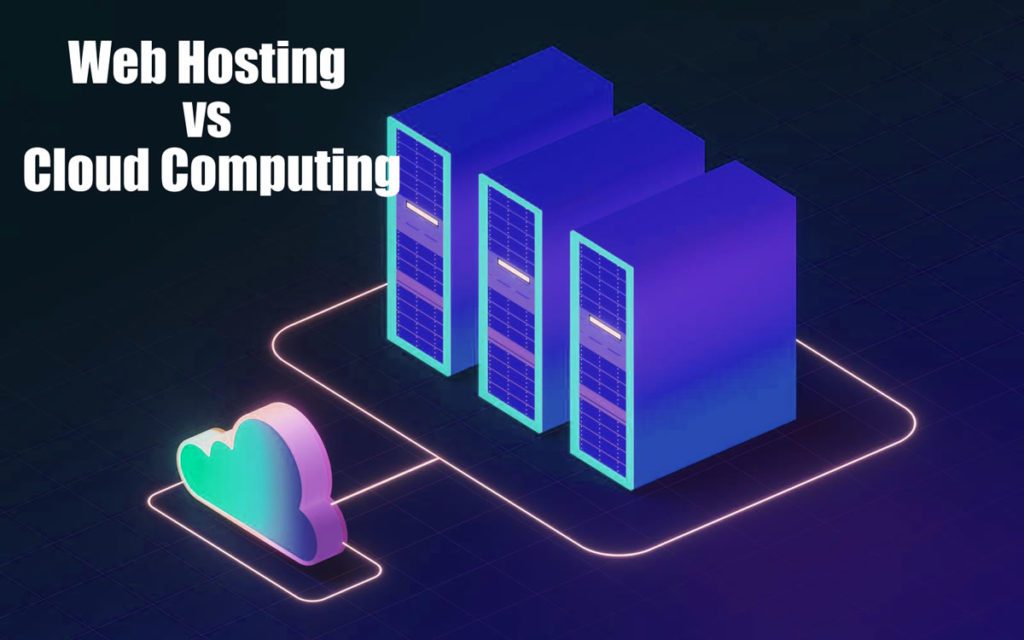Cloud host technology has transformed the digital landscape for businesses worldwide. With its scalable, cost-effective, and reliable features, cloud hosting has become the preferred choice over traditional hosting methods. Cloud infrastructure, servers, and services have enabled businesses to enhance their online presence and streamline their operations.
Cloud host technology has revolutionized the online experience for businesses. It provides a flexible and efficient way to access and use computing resources on-demand. The transformative nature of cloud-based technology has had a significant impact across various industries, enabling businesses to gain a competitive edge in the market.
Understanding Cloud Hosting Solutions
Cloud hosting is a type of web hosting that utilizes a network of servers to deliver computing resources, software, and data over the internet. This section will provide an in-depth look at the different components involved in cloud hosting solutions and how they work together to provide businesses with a range of benefits.
Cloud Infrastructure
The foundation of cloud hosting is the cloud infrastructure, which consists of multiple servers connected over a network. This network allows for seamless distribution of resources and workloads, enabling businesses to scale up or down as needed without any downtime or interruptions. The cloud infrastructure also allows for redundancy and failover mechanisms, ensuring high availability and data protection.
Cloud Servers
Cloud servers are virtual machines that run on the cloud infrastructure and provide businesses with access to computing resources on-demand. These servers can be customized to meet specific business needs, including CPU, RAM, storage, and operating systems. Cloud servers also enable businesses to easily add or remove resources as they scale up or down, providing a cost-effective solution that aligns with business growth.
Cloud Services
Cloud services are software applications or tools that are provided via the cloud infrastructure, eliminating the need for businesses to install and manage them on their own servers. These services can include applications for email, database management, content management, and more. Cloud services are typically subscription-based, allowing businesses to pay only for what they need while still benefitting from the scalability and reliability of the cloud.
By utilizing cloud infrastructure, servers, and services, businesses can leverage the power of cloud hosting to streamline their operations, increase efficiency, and reduce costs compared to traditional hosting methods.
The Power of Cloud Computing
One of the key components of cloud host technology is cloud computing, which allows businesses to access and use computing resources on-demand through the internet. Cloud computing provides a scalable and flexible way to manage data and applications, without requiring extensive hardware or infrastructure. With cloud-based technology, businesses can take advantage of a range of services, including storage, processing, and analytics, without needing to invest in expensive equipment.
“Cloud computing is critical for business agility and innovation, as it allows organizations to rapidly test and deploy new applications, while scaling their infrastructure to meet changing demands.”

Cloud computing can significantly improve the way businesses operate, by providing increased efficiency and responsiveness. By using cloud-based solutions, businesses can reduce costs, improve collaboration, and access applications and data from any location. Cloud host technology further enhances these benefits, as it leverages the power of cloud computing to provide a comprehensive suite of services and infrastructure.
Benefits of Cloud Host Technology
Cloud host technology offers numerous benefits for businesses of all sizes. By leveraging cloud infrastructure and services, businesses can improve scalability, reduce costs, enhance security, and simplify management.
| Benefit | Description |
|---|---|
| Scalability | Cloud host technology allows businesses to easily scale their computing resources up or down based on demand, without the need for physical upgrades or additional hardware. |
| Cost-effectiveness | Cloud host technology eliminates the need for businesses to invest in expensive hardware, maintenance, and upgrades, resulting in significant cost savings. |
| Enhanced Security | Cloud hosting providers offer advanced security measures, such as encryption, firewalls, and threat detection, to ensure data protection and minimize cyber attacks. |
| Simplified Management | Cloud host technology provides businesses with centralized management tools and services that enable them to monitor and optimize their cloud infrastructure more efficiently. |
Furthermore, cloud host technology allows businesses to access their data and applications from anywhere in the world, improving flexibility and enabling remote teams to work seamlessly. By adopting cloud host technology, businesses can gain a competitive advantage and stay ahead of the curve in today’s digital landscape.
Cloud Infrastructure and Services
Cloud infrastructure and services are the backbone of cloud host technology. They enable businesses to access computing resources on-demand, store and process data, and deploy applications and services. Cloud infrastructure consists of servers, storage, and networking components that are hosted in remote data centers and can be accessed via the internet. Cloud services, on the other hand, include a variety of ready-to-use software and tools that businesses can leverage to enhance their operations, such as cloud storage, databases, analytics, and more.
Choosing the Right Cloud Hosting Provider
Choosing the right cloud hosting provider is crucial for businesses looking to take advantage of cloud host technology. There are several factors to consider when selecting a provider:
- Reliability: Ensure the provider guarantees a high uptime percentage, with minimal downtime for maintenance or upgrades.
- Security: Look for providers offering robust security measures, such as firewalls, encryption, and intrusion detection and prevention systems.
- Scalability: Choose a provider that can scale resources up or down as needed, to handle fluctuating traffic or demand.
- Support: Select a provider with a responsive and knowledgeable support team, who can help troubleshoot issues and provide guidance as needed.
Additionally, businesses should ensure they choose a cloud platform that aligns with their needs. Some providers may specialize in certain industries or offer specific features, such as advanced analytics or machine learning capabilities.
By carefully evaluating providers based on these criteria, businesses can make informed decisions and select a provider that meets their needs and budget, thereby maximizing the benefits of cloud host technology.
Managing Cloud Host Technology
Effective management of cloud host technology is essential for businesses to fully leverage its benefits. Cloud infrastructure is dynamic and constantly evolving, which requires proactive management to ensure high availability and performance.
| Best Practices | Description |
|---|---|
| Monitoring Cloud Infrastructure | Monitoring cloud infrastructure is critical to ensure optimal performance and detect issues before they become problems. Businesses can use cloud management tools and services for efficient monitoring of their infrastructure. |
| Optimizing Cloud Infrastructure | Optimizing cloud infrastructure involves configuring resources to run efficiently while maintaining high availability and performance. Automated scaling and load balancing can help optimize cloud infrastructure. |
| Ensuring Data Security | Ensuring data security is paramount for businesses using cloud host technology. Strict access controls, data encryption, and regular backups are some of the measures that businesses can take to ensure data security. |
| Managing Costs | Proper cost management is crucial for businesses to make the most of their cloud host technology investment. Businesses can optimize their spending by selecting appropriate pricing plans, monitoring usage, and identifying cost-saving opportunities. |
The use of cloud management tools and services can simplify the management of cloud host technology. These tools provide centralized management and monitoring of cloud infrastructure, enabling businesses to focus on their core operations.
Learn more about Web Hosting Vs Cloud Computing
The Future of Cloud Host Technology

Cloud host technology has been rapidly evolving, and the future looks even more promising. With the increasing demand for data processing and storage, businesses are embracing cloud-based technology to maximize their efficiency and scalability.
One of the emerging trends in cloud host technology is edge computing, which allows businesses to process data closer to the source, reducing latency and improving response times. This technology is ideal for applications that require real-time processing, such as IoT devices and autonomous vehicles.
The Rise of Containerization
Another significant trend is the rise of containerization, which enables businesses to package and deploy applications more flexibly and efficiently. Containerization provides an environment where applications can run reliably across different platforms, making it easier for businesses to migrate to the cloud and scale their operations seamlessly.
Serverless computing is also gaining popularity, offering businesses the option to run applications without the need for server infrastructure. This technology enables businesses to reduce their IT expenses while maintaining high levels of scalability and availability.
The Future of Cloud-Based Technology
The future of cloud host technology is exciting, with more innovative solutions on the horizon. As businesses continue to adopt cloud-based technology, the demand for reliable and secure cloud infrastructure and services will only increase.
Looking forward, cloud host technology is expected to consolidate and streamline its services, making it even easier for businesses to manage their cloud infrastructure and services effectively. Increased focus on security and compliance will drive the development of more robust and secure cloud-based solutions.
The bottom line is clear: Cloud host technology is here to stay, and businesses that embrace it will reap the rewards of increased efficiency, scalability, and profitability.





